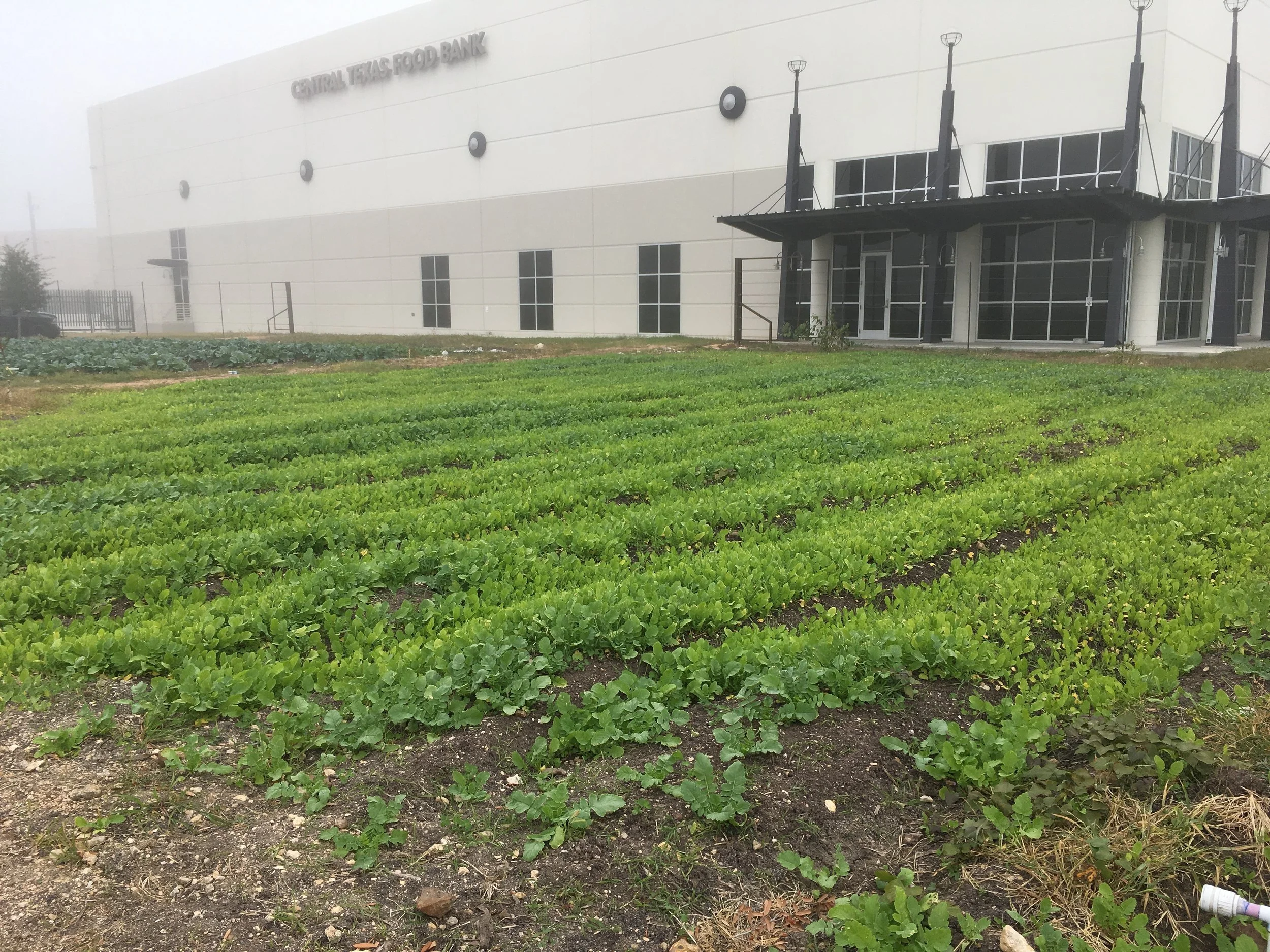
Building a FRESH Future for All Central Texans
As leaders in the fight to end hunger, the Central Texas Food Bank is committed to strategies, policies, and initiatives that are responsive to a rapidly changing food system infrastructure, including:
Increasing access to healthy FOOD and supporting innovative ways of procuring and distributing
Applying RESEARCH and best practices to proposed solutions and investments
Driving ECONOMIC stability for families through workforce training and programming
Supporting SUSTAINABLE food system practices that ensure the long-term viability of equitable food access for all Central Texans
Improving HEALTH outcomes for our neighbors
Through this lens, the Food Bank is leading the Central Texas Food System Initiative in partnership with the City of Austin Office of Sustainability and other key stakeholders across the Central Texas region to reimagine the Central Texas food system, using data to drive improvement.
The State of the Food System
In fall 2022, the City of Austin Office of Sustainability released a new State of the Food System Report, which serves as a baseline assessment of the current Austin/Travis County food system. The report highlights trends, policies, key questions, and current gaps in the City of Austin's food system. Below are some of the report’s key findings:
Only 0.06% of food consumed in Travis County is produced locally;
16.8 acres of farmland are lost daily in Travis County;
The gap between food purchased and food produced in Central Texas is $2.3 billion;
84.4% of Travis County residents do not meet daily fruit and vegetable intake recommendations;
and 1.24 million pounds of food are wasted daily in the Austin area alone.
Applying a Regional Perspective to the Food System
The Central Texas Food System Initiative supports collaborative efforts to build towards a FRESH future through a two-pronged approach focused on access and action:
Access to Data: Providing access to up-to-date food system research and data and trends over time, developing a shared measurement system to track progress, and generating new research through academic partnerships to inform effective strategies, and
Action: Setting up an advisory group that is representative of the service area that uses the measurement system to identify big-picture priorities and outline goals and strategies, convening the right working groups to address and solve specific issues.
We are developing an inclusive process that aims to engage the full community, including people who produce, prepare, distribute, serve, and eat food. Our goal is to build a shared vision—one that includes voices from community members, particularly those most affected by current inequities in the food system, as well as the public, private, and philanthropic sectors.
How Do We Get There?
We must look at the food system through a regional lens to truly address the scope, strengths, and challenges that exist within it. As rising housing costs and gentrification impact where people move and live, it will be critical to work across county lines to ensure the food system is robust and working in an equitable way.
The Central Texas Food System Initiative builds on the work of the City of Austin Office of Sustainability by providing a central repository for food system data and metrics across the Central Texas region, through the development of a shared measurement system to track the state of the food system over time, and by addressing regional priorities and questions from counties across the region. The project currently focuses on the Austin-Round Rock Metropolitan Statistical Area (Bastrop, Caldwell, Hays, Travis, and Williamson counties) and McLennan County, but will eventually expand to include the entire 21-county region the Central Texas Food Bank serves.


